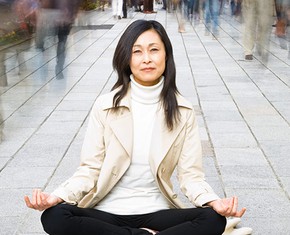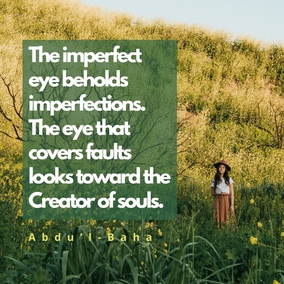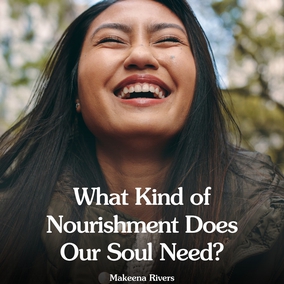The views expressed in our content reflect individual perspectives and do not represent the authoritative views of the Baha'i Faith.
For the past century, many people all around the world have invested the pursuit of personal pleasure with the immense responsibility of emancipating individuals from the oppression of social tradition. We have expected sexual pleasure, more so than any other form, to secure for all people the life satisfaction supposedly unattainable within the majority of pre-modern societies.
This burden, I’d like to suggest, may be far too heavy for pleasure to bear.
Love, on the other hand, has a far stronger role, and provides a more durable basis for human flourishing. So without getting into a defense of any particular social tradition, I’d like to explain how I came to that conclusion. It has to do with the different ways pleasure and love make connections between people.
Two individuals might share a pleasurable experience. They might even know that they both experience pleasure at the same time. But the sensual and mental experience of pleasure always limits itself to a single person. Pleasure, first and foremost, describes a feeling enclosed within oneself.
Love, on the other hand, isn’t just a feeling. Love brings about a commitment to another person’s welfare that embraces every aspect of life, not just romance and leisure. Love frees the individual to care for the long-term well-being of the other person. Abdu’l-Baha wrote about this kind of selfless love often:
Be ye the helpers of every victim of oppression, the patrons of the disadvantaged. Think ye at all times of rendering some service to every member of the human race. Pay ye no heed to aversion and rejection, to disdain, hostility, injustice: act ye in the opposite way. Be ye sincerely kind, not in appearance only. Let each one of God’s loved ones centre his attention on this: to be the Lord’s mercy to man; to be the Lord’s grace. Let him do some good to every person whose path he crosseth, and be of some benefit to him. – Selections from the Writings of Abdu’l-Baha, p. 3.
Because of its widespread overvaluation of pleasure and undervaluation of love as commitment, the cultural concept of sexual liberation has always operated under very narrow constraints. The savoring of forbidden fruit has its tantalizing excitements and promises of self-renewal. But once the pleasure has waned and the rush has passed, life continues on.

Sexual liberation is tone deaf to the vast majority of challenges we face along the way. Pleasure doesn’t do the dishes. Pleasure doesn’t watch the kids while we’re at work. Pleasure doesn’t help us dig our way out of debt. Pleasure doesn’t take care of us when we’re old and incontinent. In fact, an attachment to pleasure can, more often than not, immobilize a person from being of service in these ways.
As young people, we risk a great deal when we completely surround ourselves with people who are only interested in us for pleasure and partying. They’re there for us so long as they get to have fun. But when we really need a helping hand, they’re nowhere to be found. True friends stick with us even when there’s no fun to be had. Because of that fact, we need to shape our lives with love far more than pleasure.
When we surround ourselves with people who are genuinely committed to our well-being, and we to theirs, the diverse life challenges we face don’t seem so formidable. Being of mutual assistance becomes a selfless, loving exchange rather than a pleasure-seeking exercise, and building long-term bonds of connection to others in that way also invariably brings with it a certain degree of lasting pleasure.
Those who call for committed love and criticize sexual liberation usually conclude by endorsing marriage and family life. I don’t differ in that respect. Making love the goal and the defining characteristic of one’s relationships tends to lead inevitably towards an embrace of stable, long-term familial relations. But as a Baha’i, I want to emphasize that the family does not and should not have a monopoly on love. Abdu’l-Baha frequently made this point in his writings and public talks:
Do not be content with showing friendship in words alone, let your heart burn with loving kindness for all who may cross your path. – Abdu’l-Baha, Paris Talks, pp. 15-16.
All are equal in the sight of God, and from that perspective it is only natural that we strive in some way to be of some benefit to all. The family shouldn’t need to function solely as a refuge from a cold and unfeeling world. In a better world, it could just represent the most intimate space in a society where everybody looks out for everyone else.
If the general pattern in society tends toward unity and love to guide personal behavior and actions, then our well-being is in good hands, and pleasure can’t get us there without it.
















Comments
Sign in or create an account
Continue with Googleor